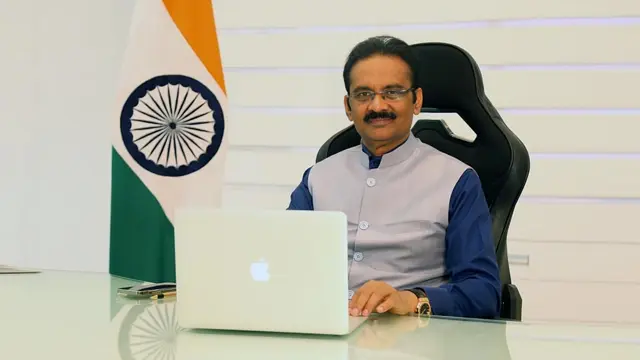The Announcement
Rajya Sabha MP and Lovely Professional University (LPU) founder, Dr. Ashok Kumar Mittal, has declared a sweeping ban on American soft drinks such as Coca-Cola, Pepsi, and other U.S.-based brands across the LPU campus. With more than 40,000 students enrolled, the move is one of the largest institutional boycotts of American beverages in India. Mittal coupled this ban with a fervent appeal to Indians everywhere: join hands to support Swadeshi 2.0, a modern revival of India’s historic self-reliance movement.
The Trigger: U.S. Tariffs on Indian Goods
The bold step came in response to the United States’ recent decision to hike tariffs on Indian goods to 50%, a move described by Mittal as “economic bullying” and a clear attempt to undermine India’s trade competitiveness. He argued that such hostile measures could not go unanswered and that ordinary citizens have the power to respond through consumer choices. By boycotting American soft drinks and opting for local alternatives, Mittal believes Indians can send a powerful economic and cultural message.
The Call for ‘Swadeshi 2.0’
Mittal has branded this campaign as “Swadeshi 2.0”, a conscious effort to draw upon the legacy of the original Swadeshi Movement of 1905. During that period, national leaders like Bal Gangadhar Tilak, Lala Lajpat Rai, Aurobindo Ghosh, and Bipin Chandra Pal inspired Indians to reject British-made goods and embrace local production. According to Mittal, the current geopolitical scenario demands a similar spirit: “If our forefathers could unite to defy colonial dominance, why can’t we unite now to protect our economic sovereignty?”
Symbolism and Wider Impact
- Educational Institutions as Leaders: By launching this ban at LPU, Mittal emphasizes the role of universities as catalysts for social and political movements. A campus with tens of thousands of students becomes a living laboratory for nationalist economic practice.
- Economic Pressure on Corporations: While symbolic at first glance, such a boycott could impact market perception and potentially dent sales if the movement spreads nationwide.
- Cultural Assertion: The ban signals more than economics—it asserts India’s cultural pride, showing that Indian consumers will not hesitate to push back against perceived unfair treatment.
- Amplified Voices: Figures like Baba Ramdev and various nationalist groups have already expressed solidarity, hinting at the potential for a snowball effect that could spread far beyond Punjab.
Political and Economic Dimensions
The decision is not only about consumer goods but also about shaping the narrative of economic nationalism in India. Mittal’s stance feeds into a larger political discourse on self-reliance, protection of Indian industries, and the reduction of foreign dependency. With India already pushing campaigns like Atmanirbhar Bharat, Swadeshi 2.0 could align public sentiment with policy initiatives aimed at fostering local enterprise.
Critics, however, argue that bans on specific products may only serve as short-term symbolism unless backed by structural reforms, innovation, and competitive alternatives. For Swadeshi 2.0 to succeed, Indian businesses must rise to meet consumer expectations in both quality and affordability.
What Lies Ahead
Ashok Mittal envisions Swadeshi 2.0 as more than a protest—it is a national movement for economic dignity and resilience. The roadmap includes:
- Encouraging citizens to prefer Indian brands in everyday consumption.
- Grassroots awareness campaigns across schools, universities, and social media platforms.
- Policy advocacy to press the government for countermeasures against unfair trade practices.
- Empowering local industries and startups to provide strong alternatives to multinational corporations.
Conclusion
The ban on American soft drinks at LPU is not merely a local administrative order—it is a political statement, an economic protest, and a cultural declaration rolled into one. Whether it becomes a flashpoint for a larger nationwide movement depends on how strongly Indians rally behind the idea of Swadeshi 2.0.
FOR MORE BLOGS – beyondthepunchlines.com

 Add to favorites
Add to favorites








